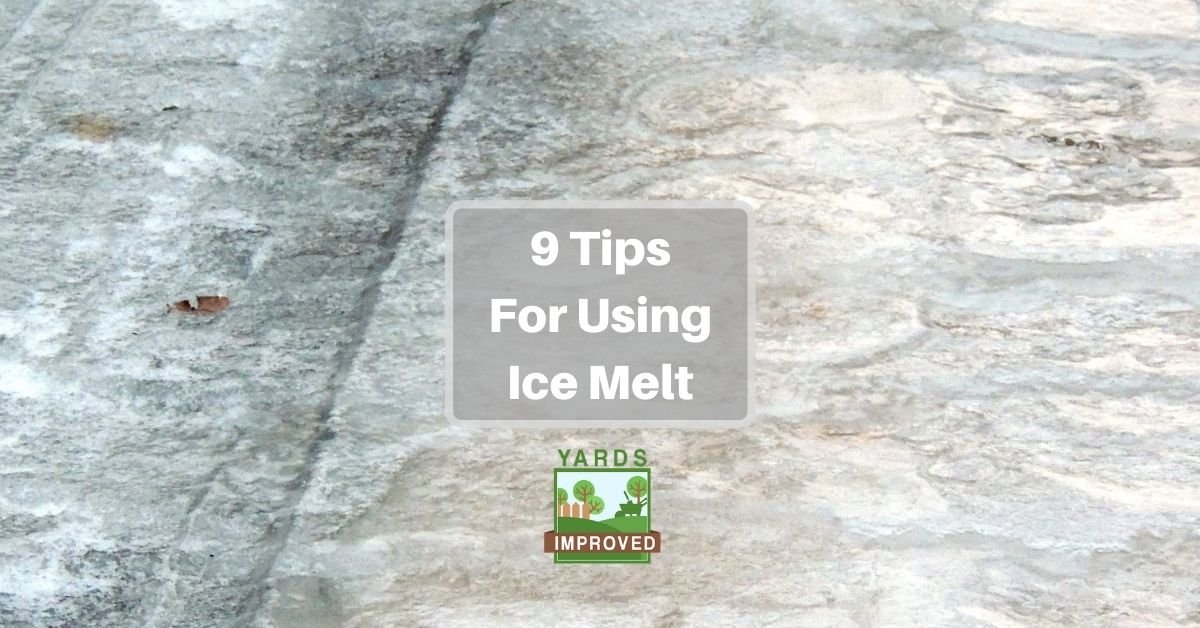Snow is beautiful – at least for a little while. Soon, though, it turns into a slushy, icy mess. That ice can be both ugly and dangerous when it’s on your sidewalk and driveway. It’s also tough to remove without a good ice melt. But to get good results, you’ll need to use it right.
With these tips and a quality ice melt product, you’ll have your ice melting as fast as possible!
Are You Ready For Ice Melt?
Before anything else, you should be sure that ice melt is right for you. If you’ve poured concrete within the past year, you should avoid it. Concrete can take a full year to completely cure, and the salt could cause damage until that process has passed.
Also, not all ice melts are suitable for wooden decks or porches.
Be sure that your asphalt, concrete, or other surface is always sealed according to normal recommendations.
Buy Ahead
Whenever there’s an impending snowstorm, the stores quickly run out of snow shovels and ice melt. So why wait and run the risk?
Stock up before the snow comes. Ice melt generally has a two-year shelf life as long as you store it properly, so even if the coming year is mild, odds are you’ll be able to use it next year.
Store In A Cool, Dry Place
Speaking of storage, be sure to keep your ice melt in a cool, dry place. It’s designed to absorb moisture, so keeping it dry will mean it’s still ready to go when you need it.
Seal the bag or container tightly. If it’s a bag that’s tough to tie closed, we recommend placing it inside an airtight container. In any case, keep it where the temperature remains cool year-round – perhaps the garage, basement, or shed.
Use Protective Gear
Don’t forget that ice melt is corrosive. If it can damage concrete, it can also damage your skin and mucous membranes.
Use gloves when spreading the mix. Goggles are a good idea, also.
Got Chunks? Roll The Bag
Some moisture is bound to get into the container even if you’ve sealed it well. And that can cause the material to start to clump together.
To break it apart, roll the bag along the ground (or a workbench). This will break up the clumps. It’s also less likely to tear the bag than banging it.
Get A Jump On The Storm
When it comes time to do battle with the storm, you might be able to get a headstart.
If you use liquid ice melt, apply it to your driveway and sidewalk ahead of time. Follow the instructions on the container – there’s no need to overdo it!
This early application will help keep the layer of ice from ever forming.
Shovel – Before And After
Ice melt is for getting rid of ice. If you have snow on the ground, get rid of that first.
Shovel the snow away first. Only apply the ice melt to whatever ice may be underneath or may form later (except for a pre-application of liquid ice melt, as mentioned above).
After the ice has melted, shovel or sweep off the remaining ice melt product and any water. This will help keep ice from re-forming, prevent the product from damaging the surface, and keep you from tracking it into the house or car.
Spread, Don’t Clump
We say it all the time, but just another reminder: follow the instructions when applying your product. You don’t need a huge amount of product – a little goes a long way.
Spread it evenly, too. Clumps or piles don’t serve any real purpose and can do more harm to concrete or other surfaces.
Clean Off Your Shoes and Pant Legs Before Going Inside
As we mentioned, ice melt is a corrosive substance. Before going back into your house, do your best to knock it off your shoes and pant cuffs – and anywhere else it may be sticking, like gloves or coat sleeves. If you have a mudroom, you may even want to change there and shake the “work clothes” outside. Otherwise, you could do a lot of damage to carpets and floors.
Conclusion
Ice melt is awesome for saving backbreaking labor and making your sidewalk and driveway safe to walk on. Proper use helps guarantee you get the most out of it without causing damage to the surface, your skin, or the inside of your house.









